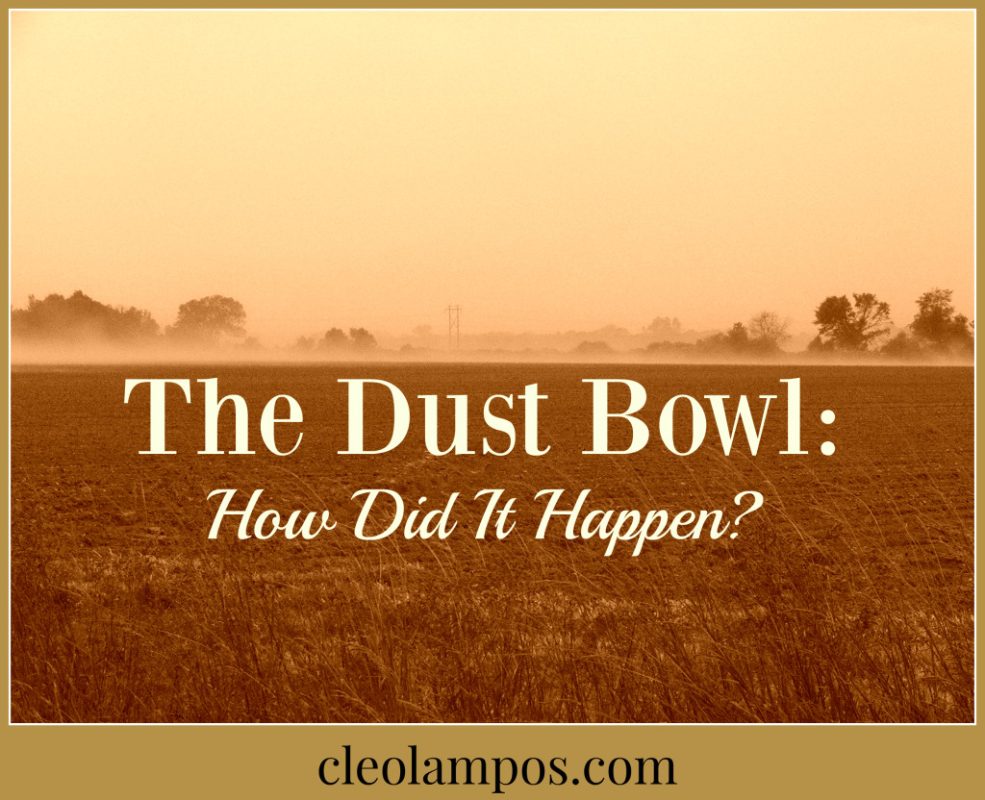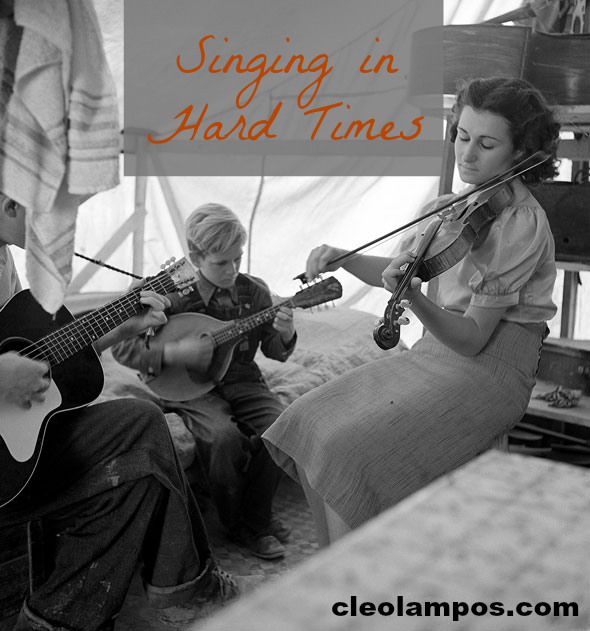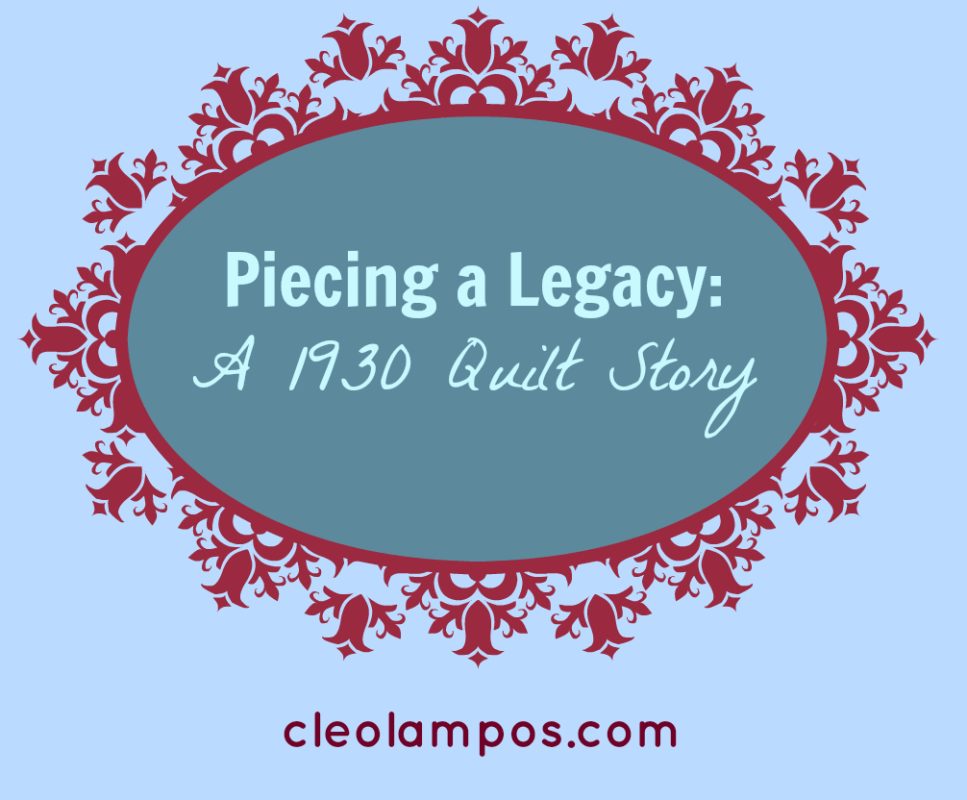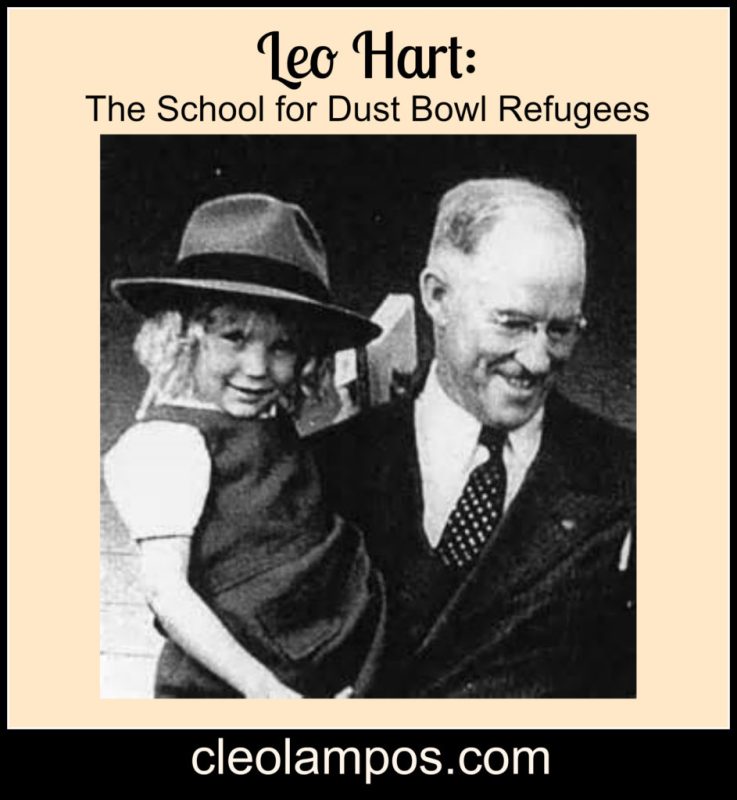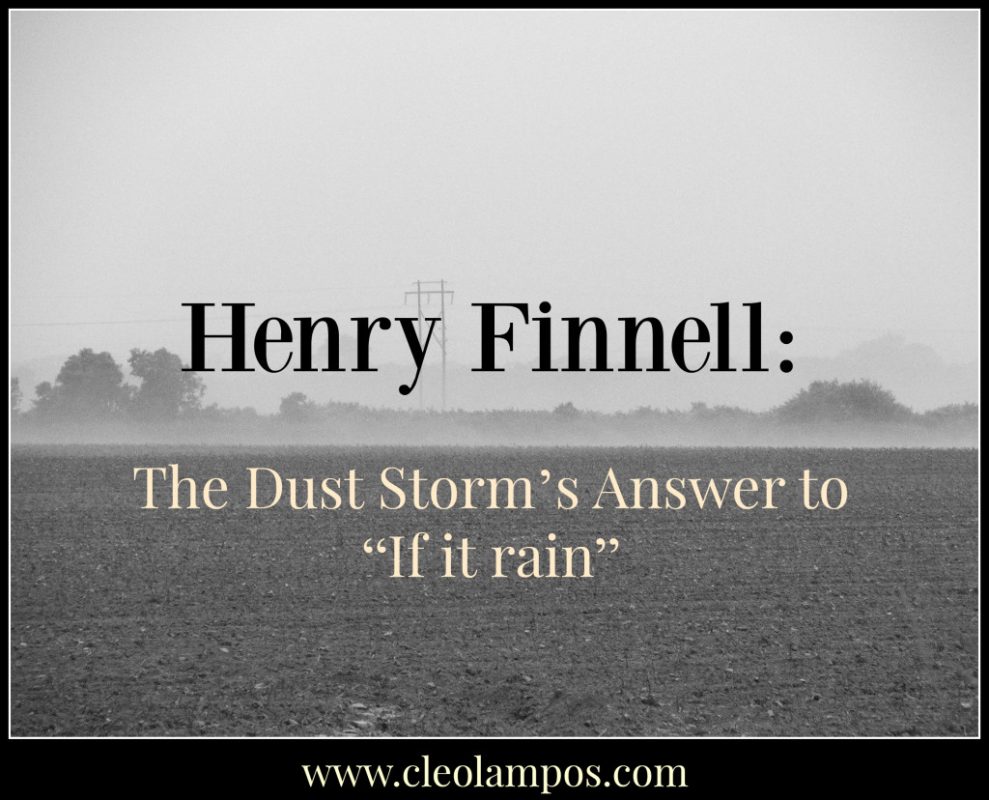Childhood memories Living in Greeley, Colorado, as a child, water conservation made perfect sense. My mother used a wringer washing machine with two tubs of rinse water. After hanging the wet clothes on the lines, she emptied the tubs by carrying buckets of the water to the strawberry bed, the potato patch and the pea […]
Tag Archives: Dust Bowl
“How can you frighten a man whose hunger is not only in his own cramped stomach but in the wretched bellies of his children? You can’t scare him–he has known a fear beyond every other.” John Steinbeck, Grapes of Wrath Sunshine in a Jar Stock photo Having been raised in farming country by a frugal mother, […]
My mother married in 1930, just as the Great Depression descended upon our country like locusts on a cornfield. Her life in the Dust Bowl area included a Hooverville, The Black Hand, midwife delivery of my older brother, and feed sack material for hand sewing. While my father worked six days a week, 12 hours […]
The conditions of the Dust Bowl pressed the farmers and ranchers into despair. Too many days with the sun blocked out by the Black Blizzards. Fine grains of sand covering everything, including the linings of the lungs. A losing battle with locust, grasshoppers and drought that devoured any hope of a crop. Watching children lose […]
With the perspective of youth, Dennis McCann observed, “Those must have been depressing times, those long ago days of bread and milk, of feedbag clothes, and canned tumbleweed dinners. Of little or nothing.” Jane Tamse countered in her feeble, quivering voice, “Those were frugal days, but they left us with a happy childhood.” Making of […]
With the perspective of youth, Dennis McCann observed, “Those must have been depressing times, those long ago days of bread and milk, of feedbag clothes, and canned tumbleweed dinners. Of little or nothing.” Jane Tamse countered in her feeble, quivering voice, “Those were frugal days, but they left us with a happy childhood.” Making of […]
“The people in flight from the terror behind had strange things happen to them: some bitterly cruel and some so beautiful that their faith is refired forever.” – John Steinbeck, Grapes of Wrath Leo Hart refired faith. Maybe Leo Hart, Superintendent of Kern County Schools in the 1930’s, developed his own faith growing up in rural […]
I grew up knowing about Hoovervilles because my mother made a point of telling me about them. My mother and father were married in 1930. They moved to the Great Plains where my father dug irrigation ditches and spud cellars with a dragline. A wooden trailer that hitched behind their truck became their moveable home. […]
Hobos. Not bums. Not tramps. Hobos. A 17-year-old kid like Gene Wadsworth who caught his first freight train on a winter’s night in 1932. The pain of being orphaned at age 11 followed him to his uncle’s house in Idaho where five other children needed feeding. Like many of the two million plus hobos, Gene […]
“The Black Blizzards were fearful. A giant wall rolling toward you like a steamroller.” – Floyd Coen Learning to Live in the Desert Growing up in Oklahoma Territory in the early 1900’s, Henry Finnell learned the ways of the semi-arid land on his parents’ homestead. He graduated from the local high school in Stillwater, then […]
- 1
- 2

